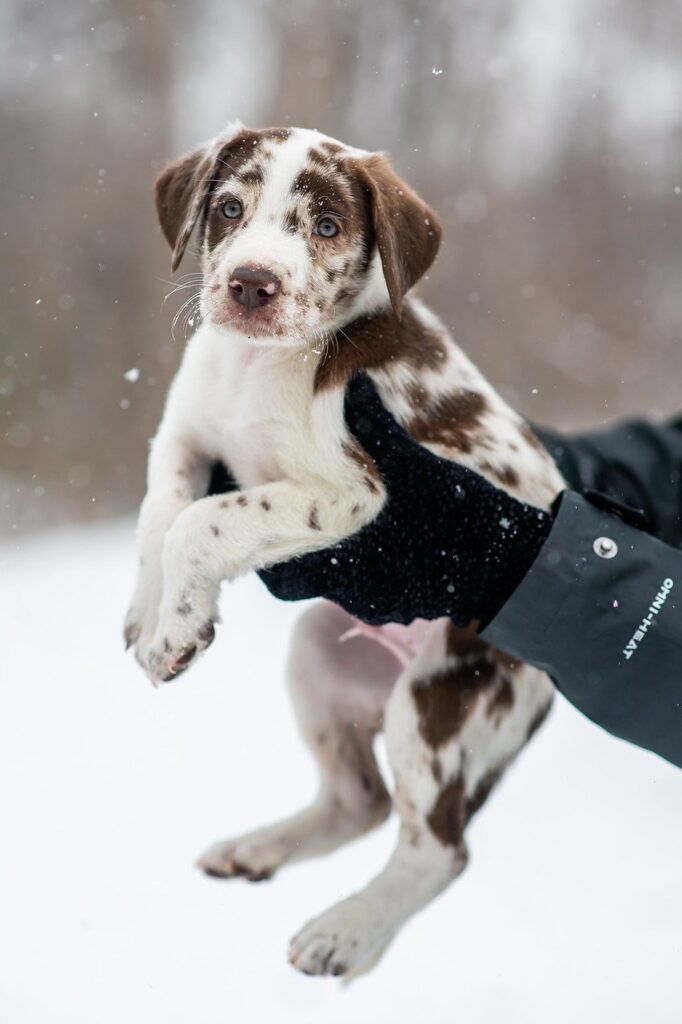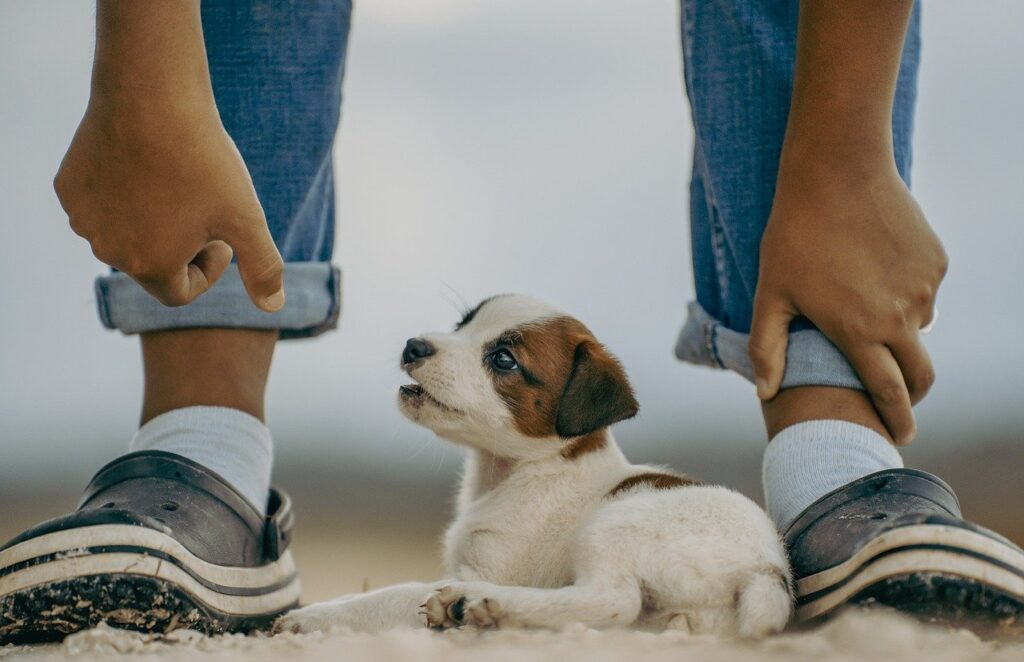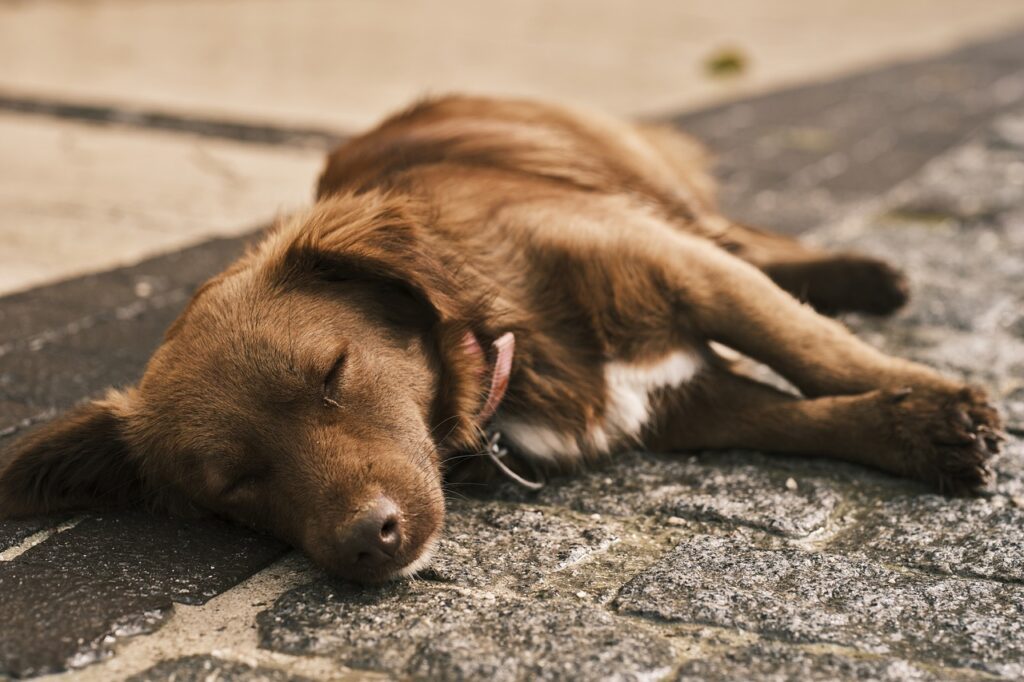There’s nothing quite as adorable as a litter of newborn puppies. Naturally, your first instinct might be to reach out and cuddle them. But wait! When it comes to newborns, it’s often best to limit touching. Here’s why you should be cautious about handling puppies too soon and what you need to know to keep them safe and healthy.
Why Touching Newborn Puppies Can Be Risky
- Stress for the Mother Dog
The mother dog, also known as the dam, is protective of her puppies, especially during the first few weeks. Excessive handling or unfamiliar scents on her puppies can make her anxious and stressed. In some cases, the mother may even reject a puppy that’s been handled too much or smells different. - Weak Immune Systems
Newborn puppies have fragile immune systems and are more susceptible to infections and illnesses. Your hands can carry germs, bacteria, or even viruses that could be harmful to the puppies. While the puppies are still building their immune systems, limiting contact helps reduce the risk of exposure to potentially harmful pathogens. - Potential for Injury
Newborn puppies are delicate and can be easily injured by rough handling, accidental drops, or even pressure from being held too tightly. Until they grow stronger and more resilient, it’s best to let the puppies rest and develop naturally.
When Is It Okay to Touch the Puppies?
While it’s wise to avoid excessive handling, there are situations where touching newborn puppies is necessary…
- Checking for Health Issues
If you’re responsible for the puppies’ care, you’ll need to monitor their health. Brief, gentle handling to check for any signs of illness or discomfort, such as swelling, abnormal breathing, or weight loss, is important. Always wash your hands thoroughly before handling them to minimize the risk of infection. - Helping with Feeding
If a puppy is struggling to nurse or is significantly smaller than its littermates, some intervention may be needed. In these cases, you may need to assist with feeding or supplement the puppy’s diet with a bottle. Again, proper hygiene is crucial when handling puppies in this situation. - Early Socialization (After 3 Weeks)
Once the puppies are around 3 weeks old, their eyes and ears will start to open, and they’ll begin exploring their environment. At this stage, limited and gentle handling can help with early socialization. Gradually introduce the puppies to human touch and different textures, sounds, and experiences to help them grow into well-adjusted dogs.
How to Handle Puppies Safely
If you need to touch or handle newborn puppies, here are some tips to do it safely…
- Wash Your Hands Thoroughly – Clean hands are necessary to prevent the spread of germs to the puppies. Use soap and warm water, and consider using a hand sanitizer for extra protection.
- Limit Handling Time – Keep the handling brief, especially during the first two weeks. Only pick up a puppy if necessary, and return them to the mother as quickly as possible.
- Be Gentle – Use a light touch and support the puppy’s entire body when lifting. Avoid squeezing or holding them too tightly.
- Respect the Mother’s Space – Always be aware of the mother dog’s behavior. If she seems agitated or distressed when you approach her puppies, it’s best to step back and give her space.
The Role of Scent in Puppy Development
Puppies use scent as an essential part of bonding with their mother. When you touch a newborn puppy, your scent can transfer onto them, which could disrupt this bond. Some mother dogs may not recognize a puppy that smells different and could refuse to nurse it or even act aggressively. To minimize this risk, you can rub your hands with a cloth that has the mother’s scent on it before touching the puppies.
Common Myths About Touching Puppies
- Myth – “If you touch a puppy, the mother will abandon it.”
While it’s true that excessive handling can stress the mother, most dogs won’t abandon their puppies just because they were briefly touched. Yet, it’s still crucial to be cautious and limit unnecessary handling. - Myth – “Handling puppies too soon makes them more sociable.”
Early socialization is important, but there’s a right time for it. Puppies aren’t ready to socialize until they’re about 3 weeks old when their senses are more developed. Handling them too early won’t necessarily improve their social skills and could expose them to risks.
What to Do If a Puppy Needs Special Attention
In some cases, a puppy may need extra care, such as bottle feeding or medical attention. If you notice any of the following signs, contact a veterinarian for advice…
- Failure to gain weight or grow
- Excessive crying or restlessness
- Difficulty nursing or latching on
- Swollen or painful areas on the body
- Labored breathing or weakness
These issues may require special handling but always follow your vet’s recommendations to ensure the puppy receives the best possible care.
While newborn puppies are undeniably adorable, it’s crucial to approach them with care and respect their need for minimal handling in the early days. By understanding the risks and knowing when and how to interact with puppies, you can help ensure their safety and support healthy development. There will be plenty of time for cuddles and play when they’re a little older!


